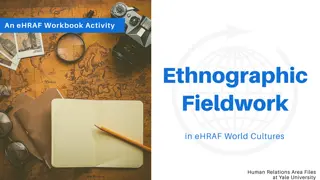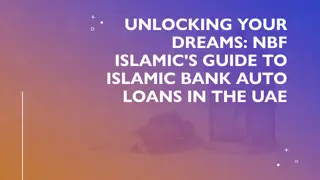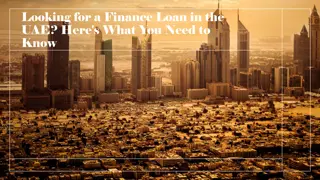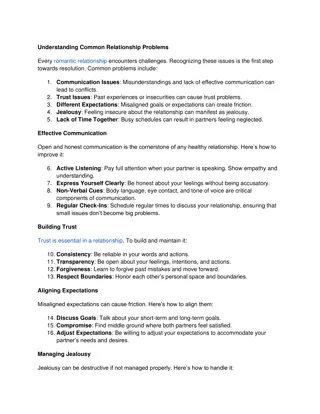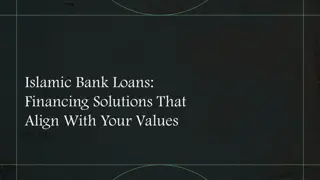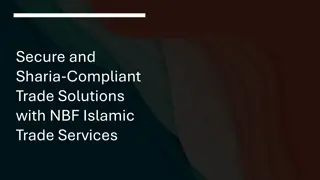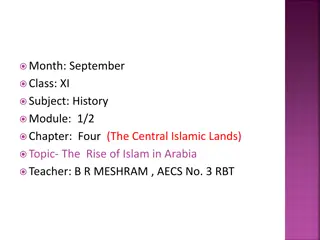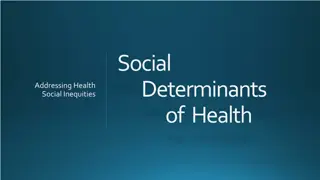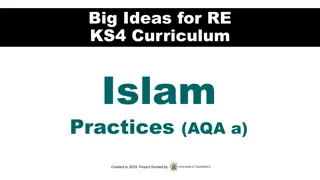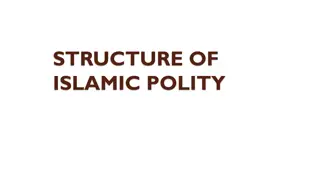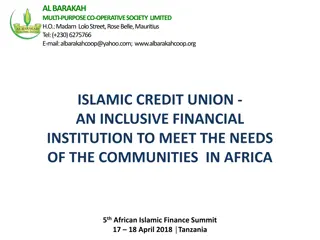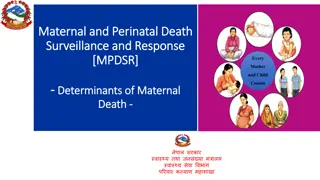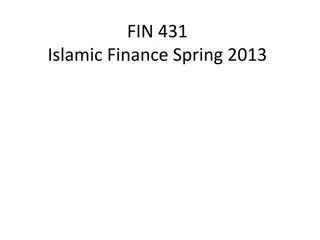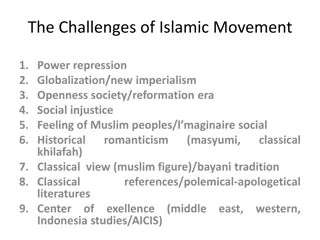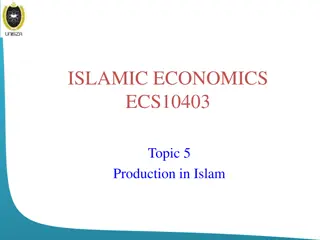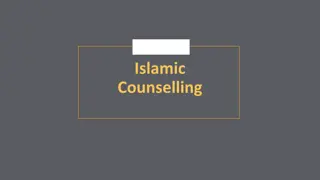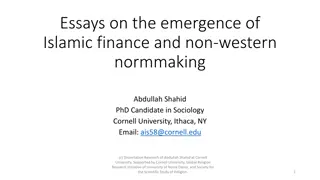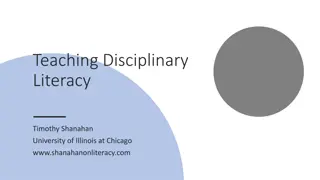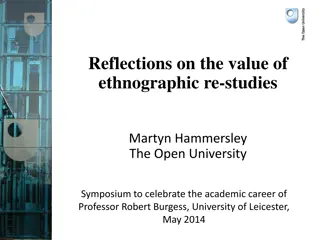
Ethnographic Studies on Determinants of Islamic Financial Literacy Levels
Explore the factors influencing Islamic financial literacy through ethnographic studies in different communities like street vendors in Malioboro and ASN/PNS community in Wonosari Gunungkidul. Understand the impact of Islamic knowledge on financial behavior and its role in promoting financial inclusion in Islamic banking.
Download Presentation

Please find below an Image/Link to download the presentation.
The content on the website is provided AS IS for your information and personal use only. It may not be sold, licensed, or shared on other websites without obtaining consent from the author. If you encounter any issues during the download, it is possible that the publisher has removed the file from their server.
You are allowed to download the files provided on this website for personal or commercial use, subject to the condition that they are used lawfully. All files are the property of their respective owners.
The content on the website is provided AS IS for your information and personal use only. It may not be sold, licensed, or shared on other websites without obtaining consent from the author.
E N D
Presentation Transcript
Determinants of Islamic Financial Literacy Levels: Comparison Based on Ethnographic Studies MIFTAKHUL KHASANAH
Introduction Islamic knowledge, behaviour in managing finances and making financial decisions that are by Islamic rules. financial literacy can be defined attitudes, as awareness, ability, and Individuals who have knowledge, skills, beliefs, attitudes and financial behavior are expected to be able to manage finances well and can overcome various financial problems
It is hoped that by increasing the level of Islamic financial literacy in the community, there will be an increase in the level of Islamic financial inclusion which means that it will also be able to increase the market share of Islamic banking towards national banks.
Studies that have researched factors that influence the Islamic financial literacy index and financial literacy, in general, have been widely carried out. Factors that are often examined are demographic factors. From the research that has been done, no one can prove that demographic variables can influence the financial literacy index consistently
Identification of factors that influence the level of Islamic financial literacy based on ethnographic studies ?
Research purposes The purpose of this study is to determine the level of Islamic financial literacy and identify factors that have a relationship and influence on the level of Islamic finance literacy in various communities. It is hoped that this research can be a reference to improve Islamic financial literacy and can indirectly realize a financial inclusion program.
Community Researched The Street Vendor Community in Malioboro Characteristics : 1. Non-fix income 2. Free time for work 3. There are no binding rules 4. Diverse social environment 5. Education level is relatively low
Community Researched ASN / PNS community in Wonosari Gunungkidul Characteristics : 1. Fix-Income 2. Time-bound work 3. There are binding rules 4. The social environment is relatively the same 5. Education level is relatively high
Methodology This study uses qualitative methods by conducting Ethnography studies. Data on the level of Islamic financial literacy in the Malioboro street vendor community with the ASN community in Wonosari were obtained using surveys.
Result Islamic Financial Literacy Index
Analysis Knowledge is an absolute and important condition in literacy. Financial knowledge can be obtained from the results of learning both informally and formally within the scope of formal education. The ability to absorb depending on the individual itself also depends on who teaches the knowledge so that many things can influence the level of financial literacy. This is where agents / intermediaries play a role in transferring information and knowledge. knowledge besides
Analysis Chen & Volpe (1998) divide the level of financial literacy index into three categories: 1. 0% - <60% indicates that individuals have a low level of financial literacy 2. 60% - 79% indicates that individuals have moderate levels of financial literacy 3.> 80% indicates that individuals have a high level of financial literacy. Referring to the literacy rate category of Chen & Volpe (1998), The Islamic financial literacy index of 64.51%, among street vendors in Malioboro is in the moderate category, while the level of ASN community financial literacy Wonosari is 55.62%, in the low category.
CONCLUSION The level of education influences the financial literacy index in one community. The situation will be different among different communities. Formal information and knowledge on Islamic finance (financial education) will work on the level of financial literacy if it is provided at the level of basic education. However, information and knowledge do not always work well if given to educated communities with formed and attached strong opinions.
CONCLUSION Banks, or Islamic financial institutions can act as potential agents. The close relationship between banks or financial institutions and customers greatly determines the level of Islamic financial literacy; this is closely related to the theory of closeness. Banks or Islamic financial institutions, both formal and non-formal, must be active and interact directly, and build good relationships with customers so that Islamic financial information and knowledge can be easily obtained and succeeded.
CONCLUSION Religious rules become one of the reasons for the lack of community connection to formal financial institutions. Thus, Islamic finance is considered to help open this access for the microfinance plays an important role in the process of inclusion of Islamic finance. Poor people can be given qard al-hasan (good loans) without fees, and even if they fail to pay, they can be given easy instalments. Here, marginalized groups education and capacity building. When they successfully rise again to the next level, then they can work with the bank until they can be established and fully connected with commercial financial institutions community. Islamic need special
MiftakhulKhasanah mifthaulkhasanah@gmail.co m 081328741427 Universitas Muhammadiyah Yogyakarta

